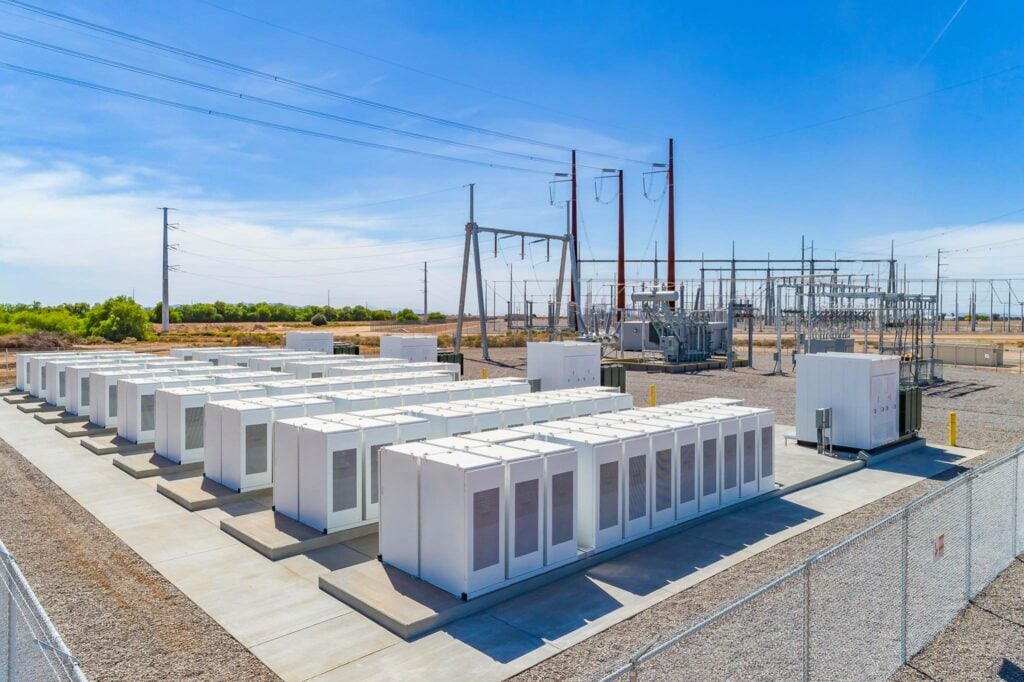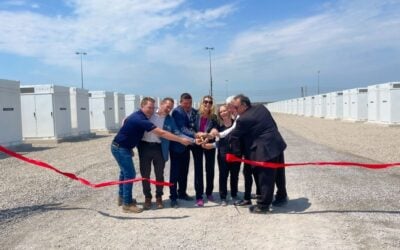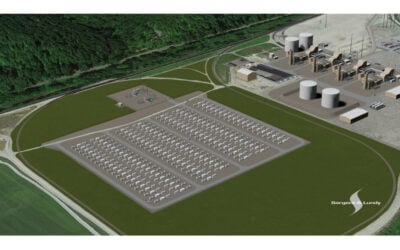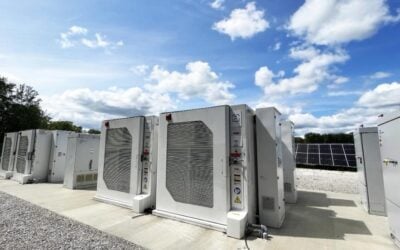
Two gas peaker plants and a gas pipeline extension have been approved by regulators in the US state of Indiana, despite concerns over their costs relative to renewable energy and energy storage.
Consumer utility company Centerpoint Energy Indiana South received the green light from the Indiana Utility Regulatory Commission for its plan which included the construction of two gas combustion turbines totalling 460MW.
Enjoy 12 months of exclusive analysis
- Regular insight and analysis of the industry’s biggest developments
- In-depth interviews with the industry’s leading figures
- Annual digital subscription to the PV Tech Power journal
- Discounts on Solar Media’s portfolio of events, in-person and virtual
The proposal was included in Centerpoint’s Integrated Resource Plan 2019-2020, the forward-planning documents which it and other utilities in regulated markets in the US have to submit every three years.
It came after the IURC had denied it a separate 2018 request to build 850MW of gas plants, citing a reluctance to meet so much of the utility’s summer peak load with just one facility – around 77% of 2019 summer peak load and about 71% of modelled summer peak load for 2031 – but the newer proposal seemingly met the regulator’s criteria for cost and environmental impact.
However, the plan has met consistent opposition from the Indiana Citizens Action Coalition and from national environmental group the Sierra Club, both of which raised concerns during the approvals process.
When the 460MW turbine plants were proposed, their expected cost was submitted by Centerpoint as US$323 million, which would add around US$23 per month on average to its customers’ utility bills.
Yet as Citizens Action Coalition (CAC) pointed out, since then gas prices have risen sharply. Inflation has too, driving construction costs up.
Perhaps even more damning is that expert testimony given on behalf of CAC in November 2021 noted the utility’s cost assumptions for cheaper and more environmentally friendly renewable energy and energy storage alternatives were flawed and overstated.
‘Unneeded and expensive fossil gas plants’
“This outrageous decision approves unneeded and expensive fossil gas power plants that will significantly raise the cost of electricity for CenterPoint customers,” CAC executive director Kerwin Olson said.
Anna Sommer, a principal at energy consultancy Energy Futures Group, submitted expert testimony for CAC. Sommer said that if errors in Centerpoint’s IRP were corrected, a lower cost plan, including more renewables and storage and avoiding the need to build the gas plants, would have been selected.
The consultant also noted transparency concerns over the modelling used by the utility and Siemens PTI, which had been hired to conduct it – Siemens PTI offered to run the analysis again but wouldn’t offer the data it used so that Sommer could run modelling independently of that.
Sales forecasting offered by the utility to justify the need for the gas plants was also overstated, Sommer believed.
“Correcting certain inputs in the IRP modelling results in the selection of a plan that is much lower cost and does not include the combustion turbines,” Sommer said in November 2021 as she submitted testimony.
“The Company has not provided sufficient justification or analysis for its choice to build these gas plants, especially given the lack of support for its outdated load forecast and the flaws in its IRP modelling.”
Another expert, Michael Gorman of Brubaker and Associates, testified that Centerpoint did not justify the need for the capacity the two gas plants would provide until as far off as 2033. Gorman also noted that factors like the rise in gas price could impact the economics of the project.
Michael Goggin, representing the Sierra Club, said also that were the IRP to be conducted again with updated cost assumptions, larger quantities of wind, solar and energy storage would have been selected over gas generation. Goggin is a consultant with a company called Grid Futures.
Unsurprisingly, utility representatives refuted the testimonies of Goggin, Sommer, Gorman and others.
“The IURC’s approval of more expensive fossil gas plants in the middle of a utility affordability crisis and the climate crisis shows how out of touch our utilities and their regulators are with Hoosiers [people from Indiana] who are struggling to make ends meet and demanding a transition to clean, affordable energy solutions,” CAC’s Kerwin Olson said.
Olson added that CAC renewed its call for Indiana’s governor, Eric Holcomb, to immediately establish a taskforce to deal with the utility affordability situation, urging the state’s policymakers “to stand up for consumers instead of protecting monopoly utility profits”.
As our sister site PV Tech reported this week, net metering schemes for rooftop solar Indiana appear to be at an end. Meanwhile, Centerpoint Energy Indiana South did get 335MW of solar PV power purchase agreements (PPAs) approved in May, with the company targeting net zero for its Scope 1 emissions by 2035. Its next IRP is expected to be published in 2023 and the planning process is set to begin imminently.






